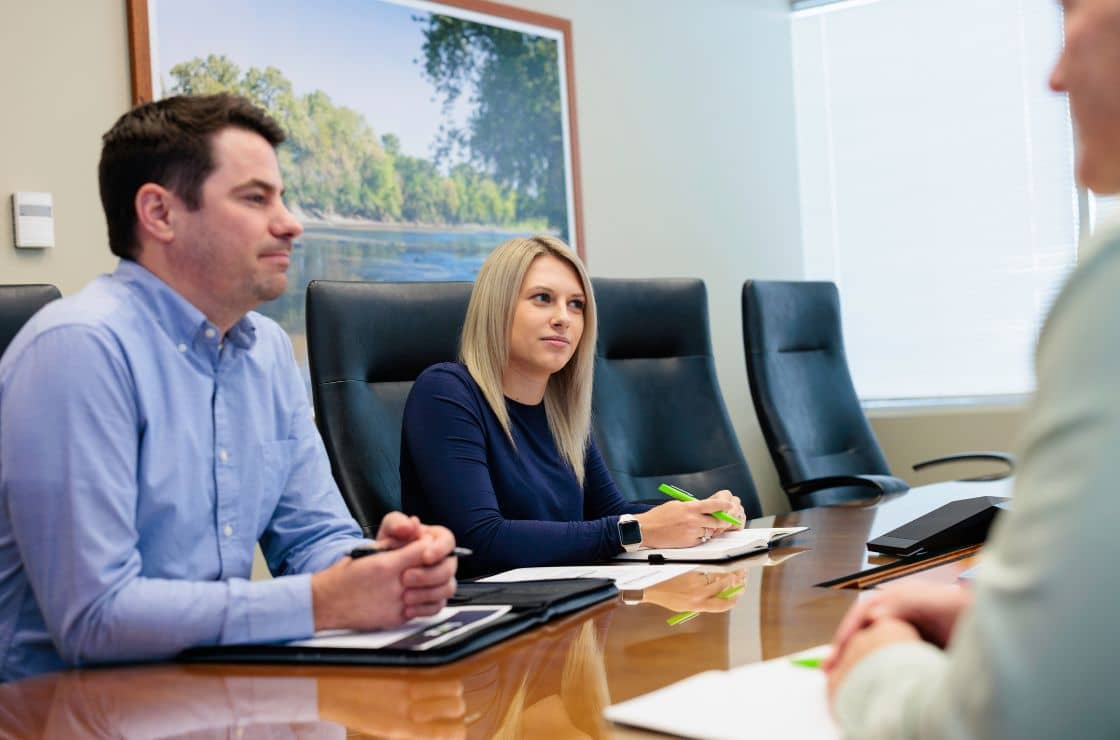
Fraud is a significant concern in finance and accounting, with the potential to cause substantial losses to investors and businesses. As auditors play a crucial role in ensuring the integrity of financial statements, it is imperative for them to effectively identify and assess the risks of material misstatement due to fraud. We will explore the key steps and considerations for evaluating fraud risk during an audit.
Understanding the Auditor’s Responsibilities in Assessing Fraud Risk
Auditing standards mandate that auditors assess the risk of material misstatement due to fraud in every audit. The primary responsibility of auditors is to obtain reasonable assurance that the financial statements are free from material misstatements, whether caused by error or fraud. It is important to note that auditors are not responsible for detecting all instances of fraud; they focus on identifying material misstatements resulting from fraud.
The responsibility for detecting and preventing fraud primarily rests with the entity’s management. They play a pivotal role in crafting an effective internal control framework. Furthermore, those overseeing governance have a critical duty to remain watchful, particularly in assessing scenarios where controls might be overridden or where the integrity of the financial reporting process could be compromised.
Differentiating Fraudulent Financial Reporting and Misappropriation of Assets
Fraud can manifest in two broad categories: fraudulent financial reporting and misappropriation of assets. Fraudulent financial reporting involves intentionally misstating financial statements to deceive stakeholders. This can include inflating revenues, understating expenses, or manipulating accounting records. On the other hand, misappropriation of assets refers to the theft or misuse of an entity's assets, such as cash, inventory, or securities.
Identifying Fraud Risk Factors in Auditing
Auditors must identify and evaluate specific risk factors to effectively assess fraud risk. While auditing standards provide guidance on risk factors, auditors should also consider industry and entity-specific factors. Some common risk factors to consider include:
- Management's tone at the top: Assessing the ethical culture set by management and their commitment to sound business practices can provide insights into the risk of fraud.
- Internal control deficiencies: Weaknesses in internal controls increase the likelihood of fraud going undetected.
- Pressure or incentives: Evaluate whether external or internal pressures may motivate individuals to commit fraud, such as financial difficulties or performance targets.
- Opportunities for fraud: Identify areas where the internal control environment may be susceptible to manipulation or circumvention.
- Rationalizations: Consider whether there are factors that may enable individuals to justify fraudulent actions, such as a sense of entitlement or a belief that fraud is necessary to achieve certain goals.
Conducting Fraud Risk Interviews
Fraud risk interviews play a crucial role in assessing fraud risk. During these interviews, auditors gather information from management, those charged with governance, internal auditors, and other key personnel. The objective is to obtain insights into the organization's processes for identifying, responding to, and monitoring fraud risks. The topics covered in these interviews may include:
- Management's knowledge of actual, suspected, or alleged fraud incidents.
- The organization's fraud risk assessment process and its results.
- Specific fraud risks identified by management or brought to their attention.
- Communications made by management to employees and those charged with governance regarding fraud risks and ethical behavior.
Conducting these interviews in person is crucial since a significant part of detecting fraud involves interpreting nonverbal cues. Subtle indicators like the interviewee's tone, inflection, response speed, and body language provide valuable context to their spoken words. By conducting face-to-face interviews, auditors also have the opportunity to detect signs of stress exhibited by the interviewees while answering questions - such as prolonged pauses or restarting their responses.
Moreover, in-person interviews enable immediate follow-up questions to be asked. When a physical meeting is not feasible, video conferences or phone calls are viable alternatives that offer many advantages similar to face-to-face interactions.
Applying Professional Skepticism and Professional Judgment
Professional skepticism is a critical mindset for auditors when assessing fraud risk. It involves maintaining an attitude of questioning, critical assessment of audit evidence, and a willingness to challenge management's representations. Auditors should exercise professional judgment to identify potential red flags, follow up on inconsistencies, and consider the implications of the information gathered throughout the audit process.
Utilizing Analytical Procedures and Data Analytics
Analytical procedures and data analytics are valuable tools in assessing fraud risk. Auditors can use these techniques to identify unusual or unexpected relationships, trends, or anomalies in financial data. By comparing current and historical data, auditors can detect potential inconsistencies or patterns that may indicate fraudulent activities.
Considering Fraud Risk in Audit Planning and Execution
Assessing fraud risk should be an ongoing process throughout the audit, starting from the planning stage. Auditors should consider fraud risk factors and add elements of unpredictability in determining the nature, timing, and extent of audit processes. This may include performing additional substantive procedures, increasing sample sizes, or focusing on high-risk areas identified during the risk assessment.
Unpredictability is important because individuals within the entity who are familiar with the audit procedures normally performed on engagements may be better able to conceal fraudulent financial reporting. By introducing unpredictability, auditors create uncertainty in the client's mind, making it harder to manipulate numbers or take advantage of unaudited areas. Documenting these tests and changing them annually is essential to avoid predictability.
Communicating and Reporting Fraud Findings
When auditors encounter fraud during an audit, they must consider the implications for the overall audit and the financial statements. If the misstatement is immaterial, auditors should report the matter to an appropriate level of management. However, if the fraud has a material impact, auditors should take the following steps:
- Discuss it with management.
- Evaluate its effect on the financial statements and the audit report.
- Report it to the audit committee.
- Suggest consulting legal counsel.
Even if the auditor suspects or comes across indications of fraud, their role does not involve making legal judgments on whether fraud has occurred.
The Limitations of Auditing in Detecting Fraud
It is important to recognize that some fraudulent activities may go undetected despite auditors' best efforts. Fraud perpetrators may employ sophisticated concealment schemes or conspire with others, making it challenging for auditors to uncover the fraud. Additionally, auditors may have limitations in detecting fraudulent financial reporting by top management. Nonetheless, auditors should remain vigilant and exercise professional skepticism to mitigate these limitations.
Continuous Improvement and Evaluation
Auditors should engage in continuous improvement and evaluation to enhance the effectiveness of fraud risk assessment. This involves learning from past experiences, staying updated on emerging fraud risks, and incorporating lessons learned into future audit engagements. The Auditing Standards Board regularly reviews and updates standards to address evolving fraud risks, ensuring auditors have the necessary guidance to assess fraud risk effectively.
By understanding the different types of fraud, identifying risk factors, conducting fraud risk interviews, applying professional skepticism, utilizing analytical procedures, and reporting findings appropriately, auditors can contribute to detecting and preventing fraud in financial statements. If you have any questions or would like to proactively address your organization’s risk of fraud, please contact us.

- Analytical, Learner, Input, Achiever, Connectedness
Rose Pinkman
Rose Pinkman, Audit Manager, began her career in 2011. She has developed extensive expertise in assurance services, with experience in internal auditing prior to joining Lutz.
Specializing in employee benefit plan audits, nonprofit audits, government audits, and single audits, Rose focuses on providing comprehensive financial reporting and analysis. She values the variety in her work, from helping clients succeed and grow their businesses to simplifying complex compliance requirements. Rose's analytical approach and passion for learning enable her to tackle challenging issues and provide innovative solutions. Her commitment extends to mentoring staff and fostering their professional development.
Rose lives in Lincoln, NE, with her husband, Dylann, and their kids, Max and Oliver. Outside the office, she can be found spending time outdoors and with her family.
Recent News & Insights
Financial Planning Advice for Recent College Grads
2024’s Hot Stocks Have Cooled Fast + 4.23.25
Do You Need a Family Office? 7 Aspects to Consider
Tariff Volatility + 4.7.25



.jpg?width=300&height=175&name=Mega%20Menu%20Image%20(1).jpg)
%20(1).jpg?width=300&height=175&name=Mega%20Menu%20Image%20(2)%20(1).jpg)
%20(1)-Mar-08-2024-09-27-14-7268-PM.jpg?width=300&height=175&name=Untitled%20design%20(6)%20(1)-Mar-08-2024-09-27-14-7268-PM.jpg)

%20(1)-Mar-08-2024-09-11-30-0067-PM.jpg?width=300&height=175&name=Untitled%20design%20(3)%20(1)-Mar-08-2024-09-11-30-0067-PM.jpg)
%20(1).jpg?width=300&height=175&name=Mega%20Menu%20Image%20(3)%20(1).jpg)
%20(1).jpg?width=300&height=175&name=Mega%20Menu%20Image%20(4)%20(1).jpg)
%20(1).jpg?width=300&height=175&name=Mega%20Menu%20Image%20(5)%20(1).jpg)
-Mar-08-2024-08-50-35-9527-PM.png?width=300&height=175&name=Untitled%20design%20(1)-Mar-08-2024-08-50-35-9527-PM.png)


.jpg)




